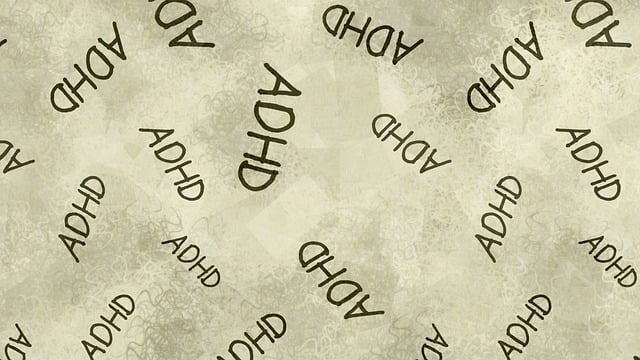Westminster Cancer Issues Therapy prioritizes addressing healthcare disparities through comprehensive cultural competency programs. These initiatives equip providers with tools to understand and respect diverse patients' cultural backgrounds, health practices, and decision-making processes. By integrating emotional healing, empathy building, mental wellness coaching, and self-care practices, the therapy fosters inclusive environments that enhance patient engagement, adherence to treatments, and overall outcomes.
In today’s diverse healthcare landscape, cultural competency among providers is no longer an option but a necessity. This article explores the critical need for cultural competency training in modern medical practice, focusing on cancer therapy. We delve into the significant impact of cultural biases on patient outcomes and discuss Westminster Cancer Issues as a case study for addressing disparities through targeted training. By examining these aspects, we aim to provide insights into designing effective cultural competency programs for healthcare providers.
- Understanding Cultural Competency in Healthcare: A Necessity in Modern Practice
- The Impact of Cultural Biases on Patient Care and Outcomes, Especially in Cancer Therapy
- Westminster Cancer Issues: Addressing Disparities through Training and Education
- Designing Effective Cultural Competency Programs for Healthcare Providers
Understanding Cultural Competency in Healthcare: A Necessity in Modern Practice

In today’s diverse healthcare landscape, cultural competency is no longer a nice-to-have but an absolute necessity. This concept refers to the ability to understand, appreciate, and effectively interact with patients from different cultural backgrounds, beliefs, and values. Given the increasing multicultural patient population, especially in regions like Westminster, where cancer issues therapy requires a holistic approach, healthcare providers must be equipped to deliver culturally sensitive care.
Cultural competency goes beyond basic communication skills; it involves recognizing and respecting differences in health practices, attitudes towards illness, and decision-making processes. For instance, understanding the role of traditional healing methods or incorporating specific dietary needs into treatment plans can significantly improve patient outcomes. Moreover, training in stress reduction methods, mental health awareness, and compassion cultivation practices empowers healthcare providers to create a safe and supportive environment for all patients, fostering better engagement and adherence to treatments.
The Impact of Cultural Biases on Patient Care and Outcomes, Especially in Cancer Therapy

Cultural biases among healthcare providers can significantly impact patient care and outcomes, particularly in specialized areas like cancer therapy. These biases, often unconsciously rooted in personal experiences and societal influences, may lead to disparities in treatment recommendations, medication dosing, and communication styles. For instance, a study found that racial minorities receiving cancer care from providers with implicit biases were less likely to receive guideline-concordant treatments, which can negatively affect survival rates.
In the context of Westminster Cancer Issues Therapy, addressing these cultural barriers is crucial. Crisis intervention guidance, emotional well-being promotion techniques, and self-care practices are essential tools for healthcare professionals to foster culturally competent care. By acknowledging and mitigating their biases, providers can create an environment where patients feel heard, respected, and supported, ultimately enhancing the effectiveness of cancer treatment and improving overall patient outcomes.
Westminster Cancer Issues: Addressing Disparities through Training and Education

Westminster Cancer Issues therapy highlights the importance of addressing healthcare disparities through comprehensive training and education initiatives. In many communities, cultural barriers and a lack of understanding about cancer prevention and treatment contribute to unequal access to quality care. By equipping healthcare providers with the skills for emotional healing processes and empathy building strategies, these programs bridge cultural gaps, fostering trust and improving patient outcomes. The integration of mental wellness coaching programs development within such training empowers providers to support patients’ holistic well-being, addressing not just physical symptoms but also the emotional turmoil often associated with cancer diagnosis and treatment.
Designing Effective Cultural Competency Programs for Healthcare Providers

Designing effective cultural competency programs for healthcare providers is a multifaceted process that requires careful consideration of diverse patient populations and their unique needs. At Westminster Cancer Issues Therapy, we understand that cultural sensitivity is not just a nice-to-have but an essential aspect of quality care. These programs should go beyond surface-level awareness to foster genuine understanding and empathy among providers. Incorporating interactive workshops, case studies reflecting real-world scenarios, and opportunities for reflection can help healthcare professionals navigate the intricate web of cultural differences with confidence.
A key element in these training sessions is integrating self-care practices alongside risk management planning for mental health professionals. Balancing the demands of caregiving with personal well-being is crucial to prevent burnout and enhance resilience. By promoting anxiety relief techniques, providers can better manage stress, ensuring they remain attuned to patients’ emotional needs. Effective cultural competency training doesn’t just prepare healthcare workers; it empowers them to offer compassionate, culturally responsive therapy, ultimately improving patient outcomes and satisfaction.
Healthcare provider cultural competency training is no longer a choice but an imperative, especially in cancer therapy where disparities have been highlighted by Westminster Cancer Issues. By equipping healthcare providers with the skills to navigate diverse patient backgrounds, we can significantly improve patient care and outcomes. Effective programs, as discussed, should be tailored, inclusive, and continuously evaluated to meet the evolving needs of a multicultural society. This approach ensures that every patient receives respectful, culturally sensitive care, fostering better health outcomes for all.












